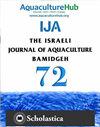Visioning the future of Aquaculture in Hawai‘i
IF 0.5
4区 农林科学
Q4 FISHERIES
引用次数: 0
Abstract
The University of Hawai‘i Aquaculture Program and the National Oceanic and Atmospheric Administration’s (NOAA) Hawaiian Islands Humpback Whale National Marine Sanctuary (sanctuary) co-hosted “Ho‘olālā i ka mahii‘a o kēia mua aku”, a workshop focused on visioning the future of aquaculture in Hawai‘i. The workshop offered an opportunity to bring diverse stakeholders together to facilitate a dialogue on issues regarding aquaculture in Hawai‘i and to build relationships to promote future collaborations. Topics of discussion included food safety and security - sustaining local communities by enhancing locally produced and consumed foods; stimulating job creation while conserving natural and cultural resources, existing and future aquaculture projects, considerations for project siting and national aquaculture policies. A Workshop Advisory Team (WAT) was formed to plan the workshop and was comprised of cultural advisors, community and stakeholder representatives, and state and federal agency representatives. The WAT identified a workshop process, content, and potential participants. The workshop was the first of a series of planned discussions and brought together cultural and fishpond practitioners, community members, farmers, business and food industry representatives, subject matter experts, state and federal agency representatives and marine resource managers. The first day of the workshop was an information-sharing day open to the public. The format included presentations and panel discussions with opportunities for questions and answers. Presentations were provided on topics including: • Historical context of aquaculture in Hawai‘i • Current aquaculture activities in Hawai‘i • A national perspective of aquaculture • The role of the Department of Land and Natural Resources in the oversight of aquaculture in the State of Hawai‘i. Panel discussions included: Native Hawaiian aquaculture practices; today’s open ocean aquaculture; and cultural and environmental considerations in aquaculture practices. The remaining two days of the workshop focused on identifying common ground among the diverse participants to stimulate value-based discussions among multiple stakeholder groups. The remainder of the workshop focused on the Appreciative Inquiry (AI) strategic planning process for invited participants. Appreciate Inquiry is a process that identifies areas of common ground within a diverse group and is highly effective in stimulating discussions based on shared values among multiple stakeholders through a series of iterative and interactive sessions. The “Ho‘olālā i ka mahii‘a o kēia mua aku” workshop provided an opportunity for diverse stakeholders to expand participation in aquaculture-related conversations that involve cultural, community, economic, and natural resource interests. By utilizing the Appreciate Inquiry strategic planning process, facilitators worked with participants to identify commonalities and shared values that promote relationship building and allow for future collaborations. Discussions served to share and increase participants knowledge of a variety of issues including food safety and security - sustaining local communities by enhancing locally produced and consumed foods; stimulating job creation while conserving natural and cultural resources, existing and future aquaculture projects, considerations for project siting and national aquaculture policies. Additionally, it was recognized that although the workshop was an important step in visioningthe future of aquaculture in Hawai‘i, ongoing discussions will have to include additionalcommunities and stakeholder representatives to engage others in the process. To that end, fishpond revitalization and restoration were recognized as an important issue for many participants and there was agreement that a follow-up workshop should be planned for fishpond practitioners and agencies to discuss obstacles and challenges to fishpond restoration. This workshop will serve as an important venue to continue sharing knowledge and experiences relative to engaging community members to provide input in considering the future of aquaculture in Hawai‘i. This report provides an account of “Ho‘olālā i ka mahii‘a o kēia mua aku” workshop, a historical context and information on current aquaculture activities in Hawai‘i, and supplemental information regarding aquaculture projects globally. The intent of the report is to provide transparency and share information more broadly with those who did not participate in the workshop.展望夏威夷水产养殖的未来
夏威夷大学水产养殖项目与美国国家海洋和大气管理局(NOAA)夏威夷群岛座头鲸国家海洋保护区(Sanctuary)共同主办了“Ho 'olālā i ka mahii 'a o kēia mua aku”研讨会,该研讨会的重点是展望夏威夷水产养殖的未来。讲习班提供了一个机会,将不同的利益攸关方聚集在一起,促进就夏威夷水产养殖问题进行对话,并建立关系以促进未来的合作。讨论的主题包括食品安全和保障——通过加强当地生产和消费的食品来维持当地社区;刺激创造就业机会,同时保护自然和文化资源、现有和未来的水产养殖项目、项目选址考虑和国家水产养殖政策。研讨会咨询小组(WAT)的成立是为了规划研讨会,该小组由文化顾问、社区和利益相关者代表以及州和联邦机构代表组成。WAT确定了研讨会过程、内容和潜在参与者。该研讨会是一系列计划讨论的第一个,汇集了文化和鱼塘从业人员、社区成员、农民、商业和食品工业代表、主题专家、州和联邦机构代表以及海洋资源管理者。研讨会的第一天是向公众开放的信息分享日。会议形式包括演讲和小组讨论,并提供提问和回答的机会。介绍的主题包括:•夏威夷水产养殖的历史背景•夏威夷目前的水产养殖活动•水产养殖的国家视角•土地和自然资源部在夏威夷州水产养殖监督中的作用。小组讨论包括:夏威夷本土水产养殖做法;今天的开放海洋水产养殖;以及水产养殖实践中的文化和环境考虑。其余两天的研讨会重点是确定不同参与者之间的共同点,以激发多个利益相关者群体之间基于价值的讨论。研讨会的其余部分集中在受邀参与者的欣赏式询问(AI)战略规划过程上。欣赏探究是一个在不同群体中识别共同点的过程,通过一系列迭代和互动的会议,在激发多个利益相关者基于共同价值观的讨论方面非常有效。“Ho 'olālā i ka mahii 'a o kēia mua aku”研讨会为不同利益攸关方提供了一个机会,扩大参与涉及文化、社区、经济和自然资源利益的水产养殖相关对话。通过利用“欣赏调查”战略规划过程,辅导员与参与者一起确定共同之处和共同的价值观,以促进关系的建立,并允许未来的合作。讨论有助于分享和增加与会者对各种问题的知识,包括食品安全和保障-通过加强当地生产和消费的食品来维持当地社区;刺激创造就业机会,同时保护自然和文化资源、现有和未来的水产养殖项目、项目选址考虑和国家水产养殖政策。此外,会议认识到,虽然讲习班是展望夏威夷水产养殖未来的重要一步,但正在进行的讨论必须包括更多社区和利益攸关方代表,以使其他人参与这一进程。为此目的,许多与会者认识到鱼塘振兴和恢复是一个重要问题,并同意为鱼塘从业人员和机构计划一个后续讲习班,讨论鱼塘恢复的障碍和挑战。该讲习班将作为一个重要的场所,继续分享与吸引社区成员为考虑夏威夷水产养殖的未来提供投入有关的知识和经验。本报告介绍了“Ho 'olālā i ka mahii 'a o kēia mua aku”研讨会的情况、夏威夷当前水产养殖活动的历史背景和信息,以及有关全球水产养殖项目的补充信息。该报告的目的是提供透明度,并与未参加讲习班的国家更广泛地分享信息。
本文章由计算机程序翻译,如有差异,请以英文原文为准。
求助全文
约1分钟内获得全文
求助全文
来源期刊
CiteScore
0.90
自引率
16.70%
发文量
49
审稿时长
3 months
期刊介绍:
Information not localized

 求助内容:
求助内容: 应助结果提醒方式:
应助结果提醒方式:


